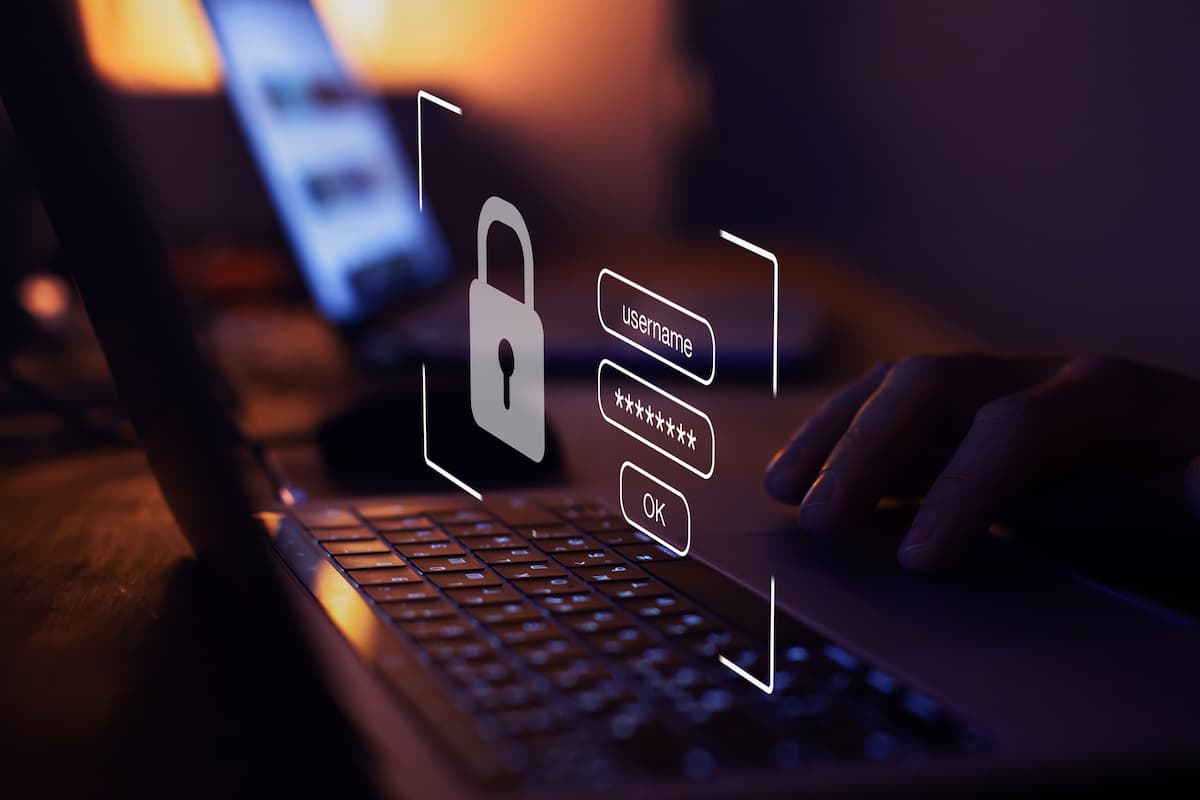As excellent as a pay day can feel, losing money you’ve worked hard to earn can feel ten times worse — which is why it’s important to choose a financial institution that enacts strong fraud prevention tactics.
Most banks utilize many different mitigation strategies to help minimize fraud risk and fraud losses, but some of those steps can be difficult to see at the consumer level. (That’s why they’re sometimes called “internal controls.”)
For your peace of mind, here are a few of the ways banks work to ensure your information — and your cash — stay safe and sound.
How do I know online and mobile banking are secure?
For many banking customers, performing regular money management tasks online can be a little scary. If everything’s digital and there’s no paper trail, how do you know it won’t all just up and disappear?
Fortunately, modern technology includes measures of modern cybersecurity which includes: unique username and password, which have to meet certain standards in order to strengthen your credentials and help make banking fraud by account takeover less likely. Some mobile apps even integrate biometric protections, such as identity authentication via fingerprint, or require multi factor authentication.
Additionally, legit banks that use mobile technology may also take the extra step to encrypt your personal information, which scrambles the data into what’s known as ciphertext1. This is done to limit access to authorized parties which will be able to access and understand the information, decreasing fraudsters — though we still suggest performing your online banking tasks at home on a secured wifi network.
What about proactive fraud monitoring?
In addition to password protection, most modern banks and card issuers may also offer active fraud monitoring services, which means your accounts are constantly being scanned for suspicious activity and fraudulent transactions. If you’ve ever had your credit card declined when making a large or uncommon purchase, followed up by a text or phone call from your bank asking you to verify the charge, you’ve experienced fraud monitoring. (It can honestly feel a little bit like a pain in the neck at the time — but it’s worth the inconvenience.)
The good news is, if the charge is authenticated, the team at your bank will typically unfreeze your account and you can go ahead and use your credit or debit card normally. But the even better news: if the charge was, indeed, card fraud, you may not be on the hook for money you didn’t actually spend or authorize.
Can a bank share my personal information?
There may be certain circumstances in which a bank will have to or choose to provide some information to certain partners and service providers.
For example, Quontic doesn’t sell any of your personal information to third parties, but we do have a contract with vendors which allow us to process your online banking transactions. (You can read Quontic’s full security statement here.)
Are my deposits FDIC insured — and what does that mean?
One of the most important things to check for when opening a new bank account is whether or not your deposits are FDIC insured. The FDIC, or Federal Deposit Insurance Corporation, is a regulatory government agency that examines and supervises banks and provides deposit insurance to consumers. As the firm itself puts it, “Since the FDIC was established in 1933, no depositor has lost a penny of FDIC-insured funds.”
The standard FDIC insured2 e amount is $250,000 per depositor, per bank, ownership category, per deposit account category — the categories include checking accounts, savings accounts, money market accounts and Certificates of Deposit (CDs). Your bank’s website should say somewhere that the money is FDIC insured (or NCUA/National Credit Union Administration insured3, in the case of credit unions). Check the security or about page, and if you’re unsure, contact someone at the bank directly.
Quontic bank has procedures in place to protect your account information and mitigate fraud. In fact, that’s exactly why we ask for so much personal information when establishing your account because it allows for identity authentication during banking transactions and customer service interactions.
Of course, there are ways for our customers to engage in fraud prevention and risk management themselves: being knowledgeable about common fraud schemes and implementing basic preventative measures can go a long way toward reducing financial crimes, including account fraud, check fraud, and identity theft.
Still have questions? Our team is standing by to help — you can call us from 9 a.m. to 6 p.m. EST, Monday through Friday, use our real-time live chat feature, or email us at any time.
The information contained in this article is provided for general informational purposes, and should not be construed as advice, a solicitation or offer, or a recommendation.
Footnotes:
1Learn more about encryption and ciphertext at https://www.investopedia.com/terms/e/encryption.asp.
3Learn more about NCUA insured accounts, which are applicable to eligible accounts and up to the maximum allowed. https://www.mycreditunion.gov/share-insurance





